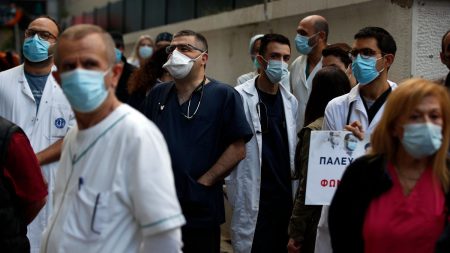A recent survey conducted by TELUS Health reveals alarming statistics regarding mental health among European workers, finding that nearly two in five are at risk for mental health issues. The survey covered six European countries: France, Italy, Spain, Poland, Germany, and the Netherlands, with 500 participants from each country. A score below 80 on their mental health index classified respondents as high-risk, and results indicated a significant variation in mental health across the countries surveyed. Spain emerged as the country with the highest risk, with 48% of workers deemed at high risk, closely followed by Poland at 45% and Italy at 43%. In stark contrast, the Netherlands reported the lowest risk at just 24%. This survey offers critical insights into the contributing factors leading to poor mental health outcomes, which include geographical, cultural, and socio-economic variables.
Key factors affecting mental health highlighted by Paula Allen, global leader of research and insights at TELUS Health, include national circumstances, cultural dynamics, and socio-demographic aspects. For instance, Allen observes that the proximity of Poland to Ukraine, currently affected by the ongoing conflict, has implications for the mental well-being of Polish workers. Furthermore, socio-economic indicators such as age, gender, and financial stability significantly impact mental health scores. Women reported scores more than five points lower than men, illuminating the disparities linked to financial resources, labor divisions, and overall life experiences. Allen emphasizes that the healthcare system responds differently to men and women, with many women experiencing under-recognized health challenges, such as those associated with menstruation and menopause, adding another layer of complexity to their mental health difficulties.
Physical health and financial security are also significant determinants of mental well-being, as indicated by the survey findings. Those who engaged in regular physical activity reported better mental health scores, while more than 10% of participants led sedentary lifestyles, resulting in nearly three additional lost workdays annually and a mental health score nearly 10 points lower than active individuals. Prolonged inactivity—defined as more than six hours daily—was directly associated with poorer mental health outcomes. The World Health Organization recommends a minimum of 2.5 to 5 hours of moderate-intensity activity per week to help mitigate such health risks. Additionally, respondents lacking emergency savings experienced heightened anxiety and depression, underscoring the need for financial safety nets in promoting mental health. Those without emergency savings had average mental health scores around 42, significantly below the overall average of 62.
Employers hold a critical responsibility in addressing mental health issues in the workplace, as outlined by Allen. The provision of supportive services can significantly improve employee well-being. Allen advocates for creating work environments that adhere to occupational health and safety guidelines to effectively shield employees from mental and physical health risks. She suggests integrating wellness initiatives—including training programs, resilience coaching, and health guidance—into workplace cultures to foster a holistic approach to employee health. By establishing such frameworks, employers can make substantial strides in promoting the mental well-being of their workforce, ultimately resulting in benefits that compound over time. Allen emphasizes that every proactive step taken by employers can enhance both workforce productivity and overall employee satisfaction.
Ultimately, the survey by TELUS Health shines a light on the multifaceted challenges faced by European workers regarding mental health. With highlights on the variances caused by national contexts, cultural experiences, and socio-economic differences, the data serves as a crucial call to action for stakeholders at various levels. The findings align with a global trend highlighting the importance of mental health as a pressing issue in workplaces worldwide and the direct impact that diverse stressors have on employees’ psychological states. It underscores the pressing necessity for integrated solutions involving both individual and systemic approaches to address these challenges effectively.
In conclusion, as mental health issues continue to rise among workers in Europe, it is imperative for governments, organizations, and health services to work collaboratively to implement effective support systems. Enhanced understanding of the demographic and socio-economic factors at play, along with concerted efforts to promote healthy lifestyles and financial security, can counteract these trends. Companies have a unique opportunity to create sustainable frameworks that prioritize employee mental health, potentially reducing the reported high-risk percentages and fostering a healthier, more productive workforce. By addressing these issues holistically, we can pave the way for improved mental health outcomes in evolving work environments.














